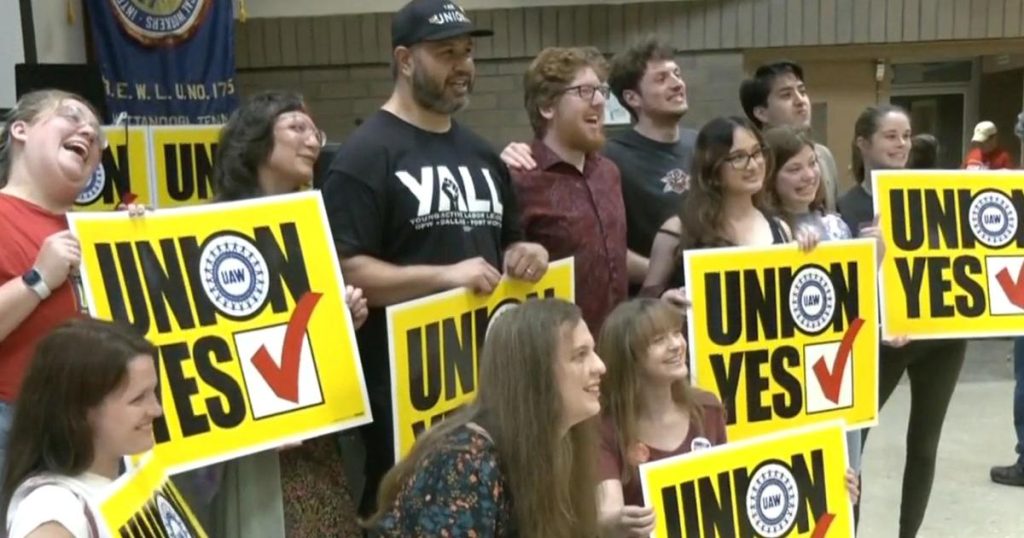Workers at two Mercedes Benz plants in Alabama recently voted against joining the United Auto Workers (UAW) union. The attempt to unionize faced resistance from both the company and Republican Alabama Governor Kay Ivey. The decision comes as a blow to the UAW’s efforts to expand its membership and influence in the southern United States, where unions have historically faced challenges in gaining traction.
The vote against joining the UAW highlights the ongoing tension between workers seeking better pay and working conditions, and companies and politicians who are opposed to unionization. Supporters of the UAW argue that unions can help workers negotiate for higher wages, better benefits, and improved working conditions. However, opponents often view unions as unnecessary and believe that workers can advocate for themselves without the need for collective bargaining.
The defeat of the unionization effort at the Mercedes Benz plants in Alabama reflects a broader trend of decreasing union membership in the United States. In recent decades, union membership has declined significantly, particularly in industries like manufacturing and automotive. As a result, unions like the UAW are facing challenges in recruiting new members and maintaining their influence in a changing labor landscape.
The outcome of the vote in Alabama may have implications for future unionization efforts in the southern United States, where labor laws and political attitudes toward unions can vary significantly from other parts of the country. The defeat of the UAW at Mercedes Benz could embolden other companies to resist unionization attempts, while also discouraging workers from seeking to join a union to advocate for their interests.
Despite the setback in Alabama, the UAW and other unions are likely to continue their efforts to organize workers and advocate for labor rights. The struggle for workers’ rights and fair treatment in the workplace is an ongoing battle that has persisted throughout history. While the defeat at Mercedes Benz may be seen as a setback, it is not necessarily indicative of the future of unionization efforts in the United States.
Ultimately, the decision to join a union is a personal one for workers, who must weigh the benefits and risks of collective bargaining and union membership. While some workers may see unions as a way to achieve better pay and working conditions, others may feel that they can negotiate for themselves without the need for third-party representation. The outcome of the vote in Alabama underscores the complex and multifaceted nature of the labor movement in the United States.


